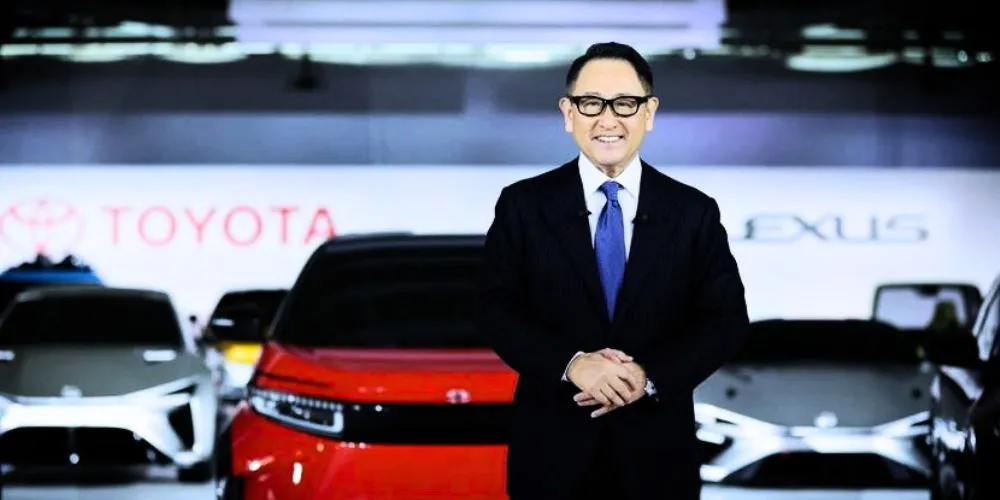Key Points:
- Akio Toyoda faces opposition from ISS and Glass Lewis. Toyota apologized for fraudulent vehicle certification tests.
- Toyota’s market value drops by 3 trillion yen ($18 billion). ISS and Glass Lewis criticize Toyoda for inadequate governance and internal controls.
- Concerns have been raised about Toyota’s corporate culture under Toyoda. Major Japanese shareholders are likely to back Toyoda despite opposition.
- Toyoda advocates hybrids and hydrogen fuel over purely electric vehicles. Toyota reports strong profits and sales, minimizing the impact of the scandal.
Toyota’s chairman, Akio Toyoda, will face discontented shareholders at the upcoming annual meeting on June 18. Two major proxy advisory groups are calling for a vote against keeping him on the board following Toyota’s recent apology for fraudulent vehicle certification tests.
The scandal has been a significant embarrassment for Toyota, a company known for its high-quality standards. Although the issues did not lead to safety problems or recalls, Toyota halted production of three models made by group companies in Japan. The company’s stock, which had tripled over the past five years, dropped to around 3,000 yen ($20) from nearly 3,800 yen ($24), resulting in a market value loss of about 3 trillion yen ($18 billion).
Institutional Shareholder Services (ISS), owned by Deutsche Borse Group, holds Toyoda accountable, criticizing his lack of board reshuffling despite promises of change. ISS contends that better communication with workers is insufficient to prevent future issues and that the company’s corporate culture remains problematic under Toyoda’s leadership.
Glass Lewis & Co., another major shareholder advisory firm, also recommended voting against Toyoda and top executive Shigeru Hayakawa. They argue that Toyoda failed to maintain adequate internal controls and governance measures across Toyota’s group companies, highlighting widespread issues that raise concerns about the corporate culture.
Despite these criticisms, Toyoda is unlikely to be ousted. The biggest shareholders are Japanese banks and financial institutions, which traditionally support the automaker. While slowly unraveling, cross-shareholdings among affiliates are expected to provide enough loyalty to keep Toyoda in his position. Last year, he was re-elected with nearly 85% of the vote, down from 96% in 2022.
Under Toyoda, Toyota has promoted a “multi-pathway” approach to ecological vehicles, focusing on hybrids and hydrogen fuel instead of solely battery electric vehicles. This strategy has faced scrutiny, but Toyoda remains steadfast in his approach.
In his recent apology, Toyoda reflected on past challenges, including a massive recall scandal in the U.S. over “unintended acceleration” shortly after he became CEO in 2009. He reassured the public that Toyota had overcome worse situations and would continue striving for improvement.
Toyota’s recent fiscal performance has been strong, with profits doubling to 4.9 trillion yen ($31.9 billion) and sales of 9.4 million vehicles in the fiscal year ending in March. Despite the current scandal, analysts like Aaron Ho of CFRA Research believe the impact on the company will be minimal, with no fundamental issues in Toyota’s management or culture.



